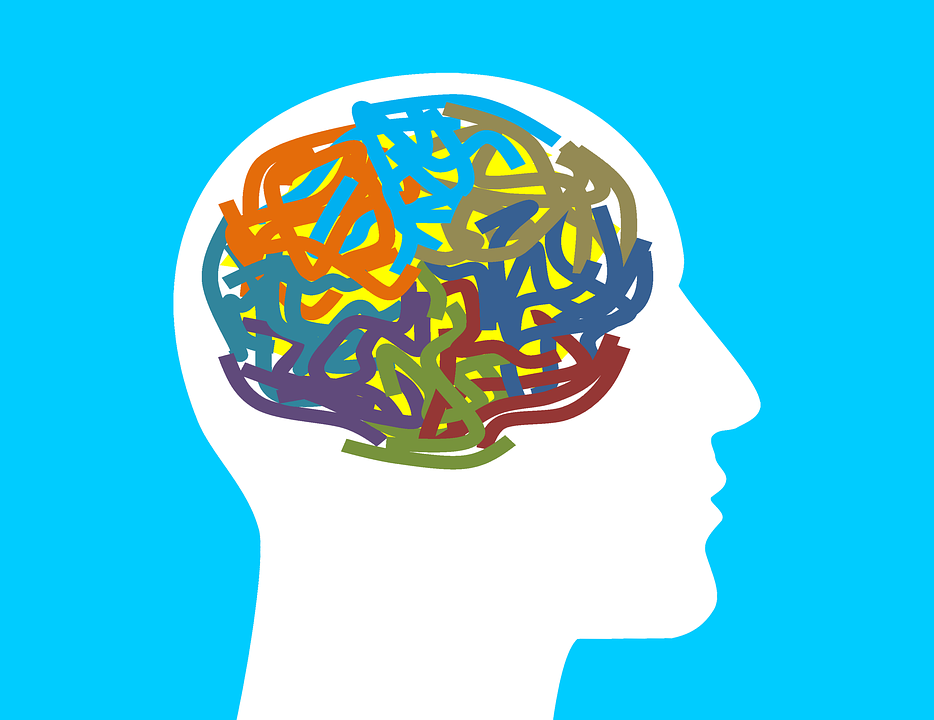Unlocking the Tricks of Mental Wellness: An Overview of Counseling and Treatment Options
Psychological health is a facility and vital aspect of general wellness. Various counseling and therapy options exist to deal with numerous emotional difficulties. Each technique offers distinct benefits and techniques customized to specific requirements. Recognizing these options is crucial for any individual looking for to improve their mental health and wellness. Marriage Counselling. What elements should one consider when discovering these methods? The answer may reveal a path to a healthier mood
Comprehending Mental Health and Its Relevance
Mental health incorporates the emotional, emotional, and social well-being of people, substantially influencing how they think, feel, and act. Its value can not be overemphasized, as it influences every element of life, consisting of partnerships, work efficiency, and overall lifestyle. Individuals with good psychological health have a tendency to deal with anxiety extra properly, keep healthier connections, and make informed choices. On the other hand, bad mental health and wellness can result in psychological distress, damaged performance, and different mental illness, which might require expert treatment. Understanding mental wellness is crucial for identifying the signs of distress and the need for support. Recognition also promotes empathy and lowers stigma, urging people to seek aid when essential. By focusing on mental wellness, neighborhoods can foster environments that sustain psychological health, inevitably leading to much healthier, much more resilient individuals. This foundation functions as an essential action toward effective psychological wellness counseling and therapy choices.
Kinds of Counseling Approaches
Therapy approaches differ widely, each customized to satisfy the distinct needs of people looking for assistance. Amongst the most usual types are cognitive-behavioral therapy (CBT), which concentrates on determining and altering negative idea patterns, and person-centered therapy, which stresses compassion and approval. Psychodynamic therapy explores subconscious processes and previous experiences to recognize present behavior, while solution-focused short treatment intends to recognize solutions instead of examine problems.Additionally, family treatment addresses relational dynamics and communication within households, fostering much healthier communications. Team therapy supplies a public room for participants to share experiences and support one another. Other approaches include existential treatment, which urges individuals to find meaning and objective, and art or music therapy, which uses imaginative expression as a restorative device. Each approach uses distinct strategies and viewpoints, permitting clients to discover the most suitable approach for their personal growth and healing trips.
Checking Out Different Treatment Techniques
In the domain of psychological wellness therapy, various therapy modalities use distinctive techniques to therapy. Cognitive Behavioral Therapy emphasizes the link between actions and ideas, while Psychodynamic Treatment explores subconscious influences on emotional wellness. Additionally, Mindfulness-Based Techniques promote present-moment awareness as a way to boost psychological guideline and total psychological health and wellness.
Cognitive Behavior Modification
Cognitive Behavior Treatment (CBT) stands apart as one of one of the most widely practiced and looked into techniques in mental health and wellness treatment. This strategy concentrates on the affiliation between actions, sensations, and ideas, highlighting that modifying unfavorable idea patterns can cause boosted psychological wellness and behavioral modifications. CBT is structured, usually entailing a limited number of sessions, and intends to furnish people with sensible abilities to handle their symptoms. It works for a selection of problems, consisting of stress and anxiety conditions, depression, and post-traumatic stress condition. By making use of techniques such as cognitive restructuring and direct exposure treatment, CBT promotes durability and empowers clients to face obstacles head-on, making it a valuable option in the landscape of psychological wellness treatments.
Psychodynamic Therapy Methods
Psychodynamic treatment techniques use a deep exploration of the subconscious mind and its influence on habits and psychological well-being. Rooted in Freudian concept, these approaches stress the importance of early childhood years experiences and subconscious disputes. Via methods such as free organization, dream evaluation, and transference, people obtain understanding into their feelings and thoughts, promoting self-awareness and understanding. This therapeutic technique encourages customers to reveal quelched feelings and unsettled issues, which can be crucial in addressing current mental obstacles. By checking out the interaction between past experiences and existing actions, psychodynamic treatment intends to promote psychological recovery and personal development. Inevitably, it offers a framework for people to discover complicated inner dynamics that affect their mental health.

Mindfulness-Based Strategies
While conventional treatments often concentrate on past experiences, mindfulness-based strategies prioritize present-moment recognition as a pathway to psychological well-being. These methods, including mindfulness-based cognitive therapy (MBCT) and mindfulness-based stress and anxiety reduction (MBSR), encourage individuals to involve completely with their ideas and sensations without judgment. Specialists learn to observe their mindsets, cultivating a better understanding of emotional triggers and feedbacks. This technique not only alleviates symptoms of anxiousness and clinical depression however also improves general psychological durability. By integrating mindfulness workouts, such as reflection and deep breathing, customers cultivate a feeling of peace and clarity. Ultimately, mindfulness-based methods encourage people to navigate life's obstacles with enhanced awareness and approval, promoting a healthier partnership with their emotions and thoughts.
The Role of a Specialist or Counselor
A skilled therapist or therapist plays a vital role in supporting individuals with their psychological health and wellness journeys. They provide a safe, non-judgmental area where clients can express their feelings and thoughts honestly. Couples Therapy. By employing different restorative methods customized to every individual's needs, specialists help customers explore underlying issues that might add to their psychological wellness challenges.Therapists use advice and tools to handle stress, anxiousness, anxiety, and other emotional difficulties. Their training outfits them to identify patterns in behavior and assumed processes, facilitating understandings that lead to individual development. They additionally foster a solid therapeutic alliance, which is vital for successful outcomes.Moreover, therapists stay committed to discretion and moral standards, ensuring a trusting environment. Eventually, the role of a therapist or counselor is to encourage people, urging them to develop resilience and healthier coping approaches while guiding with life's complexities
How to Pick the Right Therapy or Therapy Option
Choosing the ideal counseling or treatment choice begins with assessing individual needs. It is important to understand individual challenges and objectives before discovering numerous therapy designs. This foundational action can substantially affect the effectiveness of the chosen approach.
Evaluate Your Demands

Just how can individuals effectively analyze their psychological health and wellness needs when reviewing therapy or treatment alternatives? They should mirror on their emotional state and identify particular concerns, such as partnership, clinical depression, or anxiety difficulties. Journaling can be a beneficial device for tracking thoughts and feelings with time. Additionally, individuals might take advantage of looking for responses from trusted pals or member of the family pertaining to perceived changes in behavior or mood. It is likewise practical to assess personal objectives for treatment, such as improving coping abilities or acquiring understanding right into individual patterns. Looking into numerous therapy techniques and their suitability for particular demands can assist in making an enlightened option. Ultimately, self-awareness plays a crucial function in picking the best course for mental health support.
Explore Treatment Designs
While passing through the varied landscape of treatment options, people should think about various designs of click to investigate counseling to discover the very best suitable for their unique demands. Cognitive Behavioral Therapy (CBT) concentrates on transforming negative idea patterns, while Psychodynamic Treatment discovers previous experiences and subconscious procedures. Humanistic methods emphasize individual development and self-actualization, fostering a helpful environment. Furthermore, mindfulness-based treatments grow present-moment understanding, helping emotional policy. For those looking for framework, Solution-Focused Brief Treatment targets go to my blog details goals and solutions. Group therapy offers a communal setup for common experiences and assistance. Ultimately, people ought to assess their preferences, convenience degrees, and certain difficulties, ensuring they choose a therapeutic design that reverberates with their individual trip toward psychological well-being.
Conquering Obstacles to Seeking Help

The Advantages of Counseling and Treatment for Mental Wellness
Seeking help for psychological health and wellness difficulties can bring about considerable renovations in general wellness. Therapy and therapy supply individuals with a risk-free area to explore their sensations and ideas, cultivating self-awareness and individual growth. These specialist services furnish customers with coping strategies and analytic abilities customized to their distinct situations.Moreover, treatment can lower signs and symptoms of anxiousness, anxiety, and other mental health disorders, enhancing emotional resilience. Routine sessions advertise responsibility and encourage people to set and achieve personal goals. With various restorative techniques, such as cognitive-behavioral therapy or mindfulness techniques, clients find out to reframe adverse thoughts and develop healthier behaviors.Additionally, the healing connection itself can be a resource of support, aiding to deal with seclusion and solitude. Overall, participating in counseling and therapy is a proactive step towards attaining mental health, making it possible for individuals to lead more meeting lives.
Often Asked Inquiries
How Much Time Does Therapy or Therapy Commonly Last?
The period of therapy or therapy varies considerably, often lasting from a couple of sessions to a number of months or years. Aspects influencing this consist of the individual's particular requirements, the type of therapy, and restorative objectives.
What Should I Expect During My First Session?
During the first session, individuals can anticipate an introduction, discussion of problems, and the specialist's approach. They might complete analyses and establish goals, cultivating a secure atmosphere for open communication and structure relationship.

Are There Any Kind Of Risks Linked With Treatment?
Therapy can entail threats, such as psychological discomfort, susceptability, or confronting unpleasant memories. While these difficulties might occur, they can additionally lead to individual development and healing, making the restorative procedure complex yet potentially rewarding.
How Can I Inform if My Therapist Is a Good Fit?
Establishing if a specialist is an excellent fit involves assessing convenience, interaction design, and healing strategy. Positive rapport and development towards goals are signs of a suitable match, important site vital for effective psychological health and wellness support.
Will My Insurance Cover Counseling or Therapy Procedure?
Establishing insurance coverage for counseling or therapy sessions commonly requires contacting the insurance provider directly. Plans differ substantially, so individuals should confirm benefits, co-pays, and any needed pre-approvals before seeking therapy solutions. Amongst the most typical types are cognitive-behavioral therapy (CBT), which concentrates on identifying and transforming unfavorable idea patterns, and person-centered therapy, which stresses empathy and approval. Psychodynamic therapy checks out subconscious processes and previous experiences to comprehend current habits, while solution-focused quick treatment intends to identify services instead than explore problems.Additionally, household therapy addresses relational characteristics and interaction within households, fostering healthier interactions. Various other strategies include existential treatment, which motivates individuals to locate meaning and objective, and art or music treatment, which utilizes innovative expression as a therapeutic device. Cognitive Behavioral Therapy emphasizes the link between ideas and behaviors, while Psychodynamic Treatment discovers subconscious impacts on emotional health. Cognitive Behavioral Treatment (CBT) focuses on transforming unfavorable thought patterns, while Psychodynamic Treatment explores unconscious procedures and previous experiences.
Comments on “Cognitive Behavioural Therapy vs. Other Therapies: What Makes It Unique?”